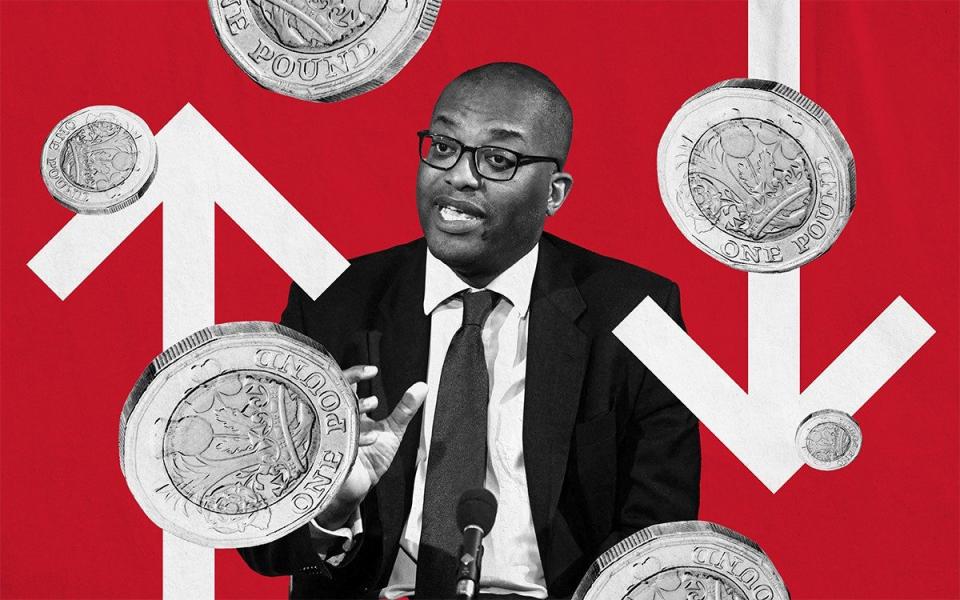Mini-Budget 2022 winners and losers

Cuts in income tax and stamp duty, the tax paid by those who buy property, were announced by the Chancellor today.
Although the Government refused to call his speech a Budget, researchers said his measures amounted to “the biggest tax-cutting fiscal event since Nigel Lawson's Budget of 1988”. Our concise guide to the mini-Budget sets out the effects of his measures on your finances.
Winners
Taxpayers
The “additional” rate of income tax of 45pc will be scrapped. The top rate of income tax will therefore be 40pc.
The basic rate of income tax will be cut from 20pc to 19pc next year, 12 months earlier than planned.
These changes do not apply to Scotland, however, where the additional rate remains and is currently 46pc. Rates in Northern Ireland are aligned to those in England, so taxpayers in the province will benefit from the reductions announced today.
The Chancellor pledged to put tax simplification at the heart of Government. “We will review the tax system to make it simpler and fairer,” he said. “We will embed tax simplification in government,” he added, so the Office of Tax Simplification will be abolished.
The Government had already confirmed that it would reverse the 1.5 percentage point rise in National Insurance rates introduced by Mr Kwarteng’s predecessor, Rishi Sunak. The change will take effect on Nov 6.
Use this calculator to see how the changes will affect your tax bill.
House buyers
“We are cutting stamp duty,” the Chancellor said. The tax-free band is being doubled from £125,000 to £250,000. It will be £425,000 for first-time buyers. He said 200,000 people wouldn’t pay stamp duty as a result. All the changes are permanent, unlike the “holidays” of recent years, and take effect today.
Contractors
He also promised reform of the hated “IR35” tax rules for the self-employed, which can result in them being taxed as if they were employees. Reforms to the system introduced in 2017 and last year will be scrapped.
Government documents released alongside the mini-Budget statement said: “The 2017 and 2021 reforms to the off-payroll working rules (also known as IR35) will be repealed from April 6 2023.”
Investors
The rise in tax rates on dividend income, which are linked to the rise in National Insurance rates, will also be reversed.
As a consequence of the scrapping of the additional rate of income tax the Chancellor has also abolished the highest rate of dividend tax. This means that an additional-rate taxpayer who previously paid 39.35pc tax on their dividends will pay 32.5pc from next year.
Abandoned rises in corporation tax also mean that investors who own shares will keep more of the profits made by the companies they invest in.
Investors will be given the chance to put money into more specialised funds by the removal of a cap on fees for certain schemes.
Savers
The abolition of the additional rate of income tax means that everyone will now qualify for the annual tax-free allowance for interest on savings, called the personal savings allowance. This is currently £1,000 a year for basic-rate taxpayers, £500 for higher-rate taxpayers and zero for those who pay the additional rate. From next year even the highest earners who previously paid 45pc tax will have a personal savings allowance of £500 a year.
Landlords
Low corporation tax rates also benefit landlords who own property via limited companies.
The unemployed
The Chancellor said unemployed people over the age of 50 would receive additional help, although he gave no details.
Alcohol duty
The link with inflation will be broken.
Losers
Taxpayers in Scotland
As mentioned above, taxpayers in Scotland do not benefit from the abolition of the additional rate of income tax or the cut in the basic rate next year to 19pc.*
Working mothers who claim benefits
Those who work part-time and claim Universal Credit will be forced to seek to work more hours or risk having their benefit cut. Mothers are likely to be particularly affected.
*We originally wrote that taxpayers in Wales would also not have benefited. This was probably incorrect (the full legislation was not published and the Welsh Budget has not been announced); we apologise for any confusion

 money
money 